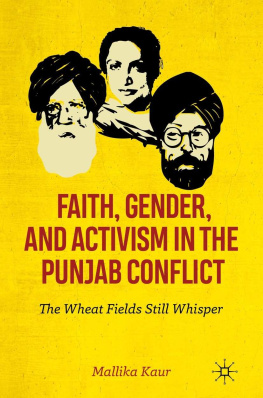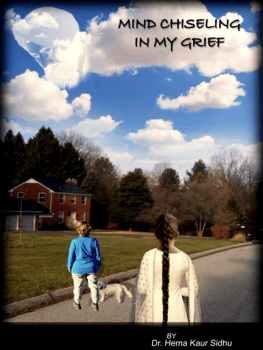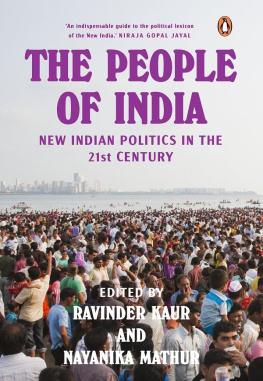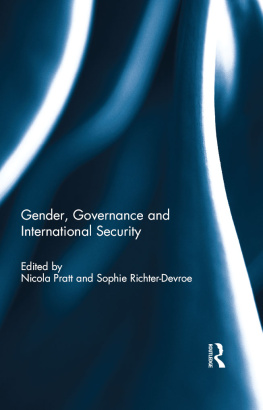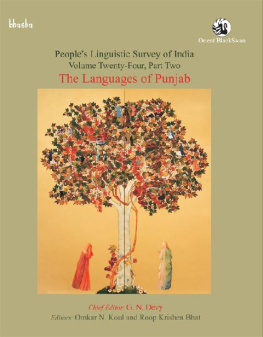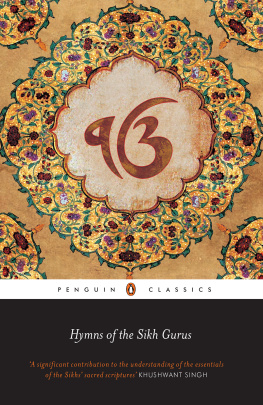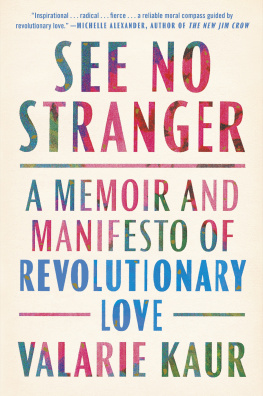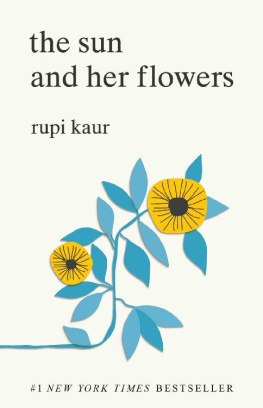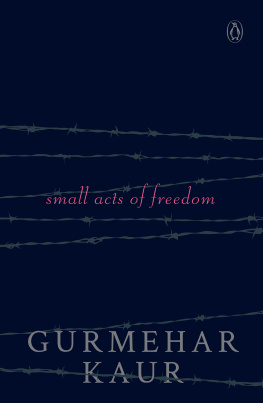Mallika Kaur - Faith, Gender, and Activism in the Punjab Conflict
Here you can read online Mallika Kaur - Faith, Gender, and Activism in the Punjab Conflict full text of the book (entire story) in english for free. Download pdf and epub, get meaning, cover and reviews about this ebook. year: 2020, publisher: Springer International Publishing, genre: Home and family. Description of the work, (preface) as well as reviews are available. Best literature library LitArk.com created for fans of good reading and offers a wide selection of genres:
Romance novel
Science fiction
Adventure
Detective
Science
History
Home and family
Prose
Art
Politics
Computer
Non-fiction
Religion
Business
Children
Humor
Choose a favorite category and find really read worthwhile books. Enjoy immersion in the world of imagination, feel the emotions of the characters or learn something new for yourself, make an fascinating discovery.
- Book:Faith, Gender, and Activism in the Punjab Conflict
- Author:
- Publisher:Springer International Publishing
- Genre:
- Year:2020
- Rating:5 / 5
- Favourites:Add to favourites
- Your mark:
- 100
- 1
- 2
- 3
- 4
- 5
Faith, Gender, and Activism in the Punjab Conflict: summary, description and annotation
We offer to read an annotation, description, summary or preface (depends on what the author of the book "Faith, Gender, and Activism in the Punjab Conflict" wrote himself). If you haven't found the necessary information about the book — write in the comments, we will try to find it.
Faith, Gender, and Activism in the Punjab Conflict — read online for free the complete book (whole text) full work
Below is the text of the book, divided by pages. System saving the place of the last page read, allows you to conveniently read the book "Faith, Gender, and Activism in the Punjab Conflict" online for free, without having to search again every time where you left off. Put a bookmark, and you can go to the page where you finished reading at any time.
Font size:
Interval:
Bookmark:

Cover illustration: Bilas Design
This Palgrave Macmillan imprint is published by the registered company Springer Nature Switzerland AG.
The registered company address is: Gewerbestrasse 11, 6330 Cham, Switzerland

Unquestionably, to my parents
The Wheatfields Still Whisper and the voices of the murdered, the tortured, the imprisoned, the dispossessed, the resisting, the expelled, and the returned still speak in this compelling volume. For the Sikh population of northern Indias Punjab region, the centurys arc from the late colonial to the current regime was and to some extent remains a journey across a battleground from which no village, no familyno man, woman, or childcould escape or leave unscathed.
Mallika Kaur harvests these voices with respect and empathy, with love and care, and also with a historically reflective eye that clearly sees the complex realities and wave patterns of that turbulent century.
Brilliantly and succinctly, she overlays the voices of this land with a sympathetic yet balanced account of its history. Different epochs rise and recede within that long historythe shared Indian drive toward decolonization in the first decades of the twentieth century; the uniquely horrific impact on the Punjab of the shameful British abandonment of the subcontinent to partition ; the early Nehru years and their vacillation toward the Sikh homelands; the disastrous consequences of Indira Gandhis partisan actions, leading to a regime that often resembled a ferocious military occupationleading in turn to sporadic armed resistance with the inevitable consequence of yet harsher military and police treatment; and in the most recent decades the resurgent Hindu nationalism that leaves little breathing space for difference and dissent.
But endemic violence not only disrupts; over time it also constructs lives, communities, places, political affiliations, andperhaps above allgendered categories and identities. With impressive sensitivity, Kaur brings to vivid life the ways in which normative ideas of masculinity and heterosexuality are disseminated amid a pervasive context of militarism. Yet, the identity and capabilities of the victims (and not only the female victims) often is strengthened and their voice and agency created and maintained over generations. And again, Kaur does not tell the reader of these tragedies and survivals; she presents these histories through the peoples own narratives.
Kaurs recount of that history is rigorously underpinned by her primary sources, many from the dominant Indian official and media documents. It successfully exemplifies the hybrid approach of personal narrative and scholarly analysis. Thiswhen well done, as herein turn extends the stylistic scope of traditional oral history projects, framing the voices within the larger social history while in turn framing that history through the voiced lives of its subjects.
Kaur successfully engages interlocutors who had not spoken about their experiences in such personal terms before. The lessons/strategies/principles highlighted in each chapter work toward a prescription of bringing human rights home, and respond to relevant discussions in the world of transitional justice and international human rights advocacy. This is highly relevant to India today, where access to human rights defenders is increasingly curtailed, and is a lesson for future work in increasingly unstable countries and regions.
Singh: Common last name bequeathed to all Sikh males by Guru Gobind Singh in 1699, to replace family names denoting caste, cementing a casteless community .
This determined rupture of the almost immemorial straitjacket of caste, coupled with the demographic reality that it was low-caste and untouchable groups who were a large part of the population attracted to Sikhism, generated the strength of this community to hold together in adversity as it also guaranteed the adversity of the dominant population against its Sikh neighbors. Held in check by the British Raj, and then briefly by what I will mislabel as the secular humanism of a Gandhi and to a lesser degree of a Nehru, the role of the partition , which weakened the early concept of a secular nation that could accommodate its minority populations, also increased popular hostility toward the dissenting Sikhs until the catastrophes of 1984 burst the last restraints a civil society under law could maintain.
But external hostility and pressure can anneal as well as threaten; and Mallika Kaurs vivid and affecting narrative of this often tragic and elegiac history also tells, in equally vivid and affecting tones, a story of survival under pressure through three centuries to the present day.
Punjab was one of the major armed conflicts in postcolonial India. In the two decades between 1975 and 1995, Punjab saw anywhere from 25,000 (according to the police estimates) to 250,000 (according to civil society estimates) killings. Just as the Sikha faith community established over 500 years ago diaspora population surged in North America, my parents made the counterintuitive choice to move our family back to a boiling Punjab. Like other Sikh children of the 1980s, I experienced the confusing discomfort of conversations triggered shut even at the mere mention of certain words that evoke a vitriol we didnt birth. As an adult, when I began reading and trying to learn more, I often understood even less about the unspoken.
In my work as a lawyer, I became fascinated by the layers of stories that begin where our legal cases and human rights reports end. The events in Punjab had since been used as a blueprint to respond to dissent and rebellion in other parts of India. Outside of counterinsurgency tactics, I wondered about what other blueprints Punjab might provide. I began exploring the stories of people from within the region who had witnessed the worst years. The lives of human rights defenders particularly captivated me. This book is centered on the experiences of three activists who are credited with saving countless lives: Ajit Singh Bains , Baljit Kaur , and Inderjit Singh Jaijee . Their life stories refuse to be written as ordinary biographies: community memory , historical vignettes, and archival treasures push back against a singular narrative in this complicated regions contested history. I have approached this topic deeply and personally conscious of the strong feelings it evokes. At the same time, I have sought not to do Punjabs conflict the disservice of another hypersimplified account; I retain a transnational human rights and feminist lens.
Font size:
Interval:
Bookmark:
Similar books «Faith, Gender, and Activism in the Punjab Conflict»
Look at similar books to Faith, Gender, and Activism in the Punjab Conflict. We have selected literature similar in name and meaning in the hope of providing readers with more options to find new, interesting, not yet read works.
Discussion, reviews of the book Faith, Gender, and Activism in the Punjab Conflict and just readers' own opinions. Leave your comments, write what you think about the work, its meaning or the main characters. Specify what exactly you liked and what you didn't like, and why you think so.

